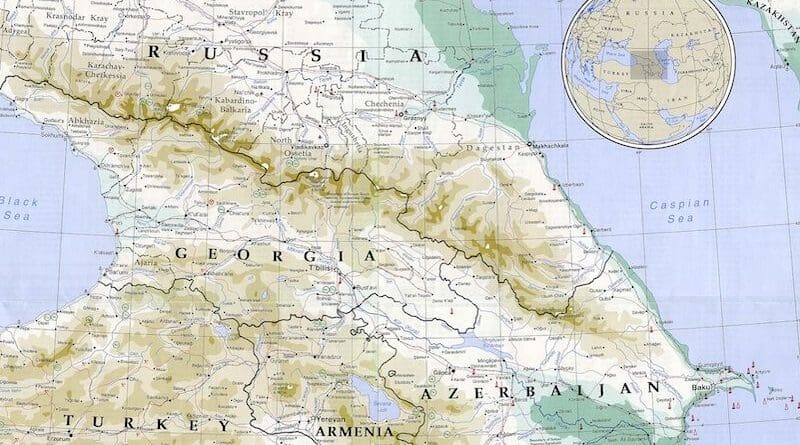The Policy Of Turkey’s Justice And Development Party Toward The South Caucasus – OpEd
By Gosan Godjaev
Turkey continues carrying on an ambitious and active foreign policy in the South Caucasus and the Central Asia. The Turkish diplomacy is still making efforts to expand its zones of influence being a “mediator” in solving regional and world problems such as the Karabakh conflict, the Arab-Israeli confrontation, and even the Iranian nuclear program. Obviously Turkey seeks to become a “big brother” for two and more regions having “a model of development” for the Turkic states.
Despite the Turkic heritage of many peoples from the Central Asia the Justice and Development Party (AKP) focuses on development of energy cooperation with the South Caucasus countries to reap a profit at the expense of the Central Asia countries that are located far away and are not rich in natural resources. All it is being done despite the statements about ethnic solidarity with them. Besides, Turkey will go till the end in deriving benefit from the economy and energy capacity of Azerbaijan. Azerbaijan is also a mediator in building a constructive dialogue between Turkey and the Turkic republics of the Central Asia.
It is clear that it has always been vital for Turkey to get cheap Azerbaijani oil and gas. The main task for Turkey is to gain control over transportation routes through Azerbaijan and other countries of the South Caucasus in order to achieve advantage over Russia and Iran in the South Caucasus.
There are two stages of the Turkish foreign policy towards the South Caucasus countries during the rule of the AKP. The first stage was in 2002-2008, the second one is from 2008 till present time. It is necessary to understand the ideology of the new entity in the Turkish political area in order to understand the changes in the Turkish foreign policy when the AKP came to power. Of course the Independent Industrialists’ and Businessmen’s Association (MÜSİAD) impacted on the AKP formation. Its members founded several AKP offices and were included in the electoral register. The Association also financed the new party. So, there is a conclusion that during the first years of rule the AKP counted on the economic projects and expansion of its economic influence abroad. It affected its policy in relation to the South Caucasus states. We see it in Azerbaijan. Many large economic projects were being triggered during this period. They are Baku-Tbilisi-Ceyhan pipeline, Baku-Tbilisi-Erzurum pipeline, and Baku-Tbilisi-Kars railway.
One of the features of the Turkish foreign policy second stage in relation to Azerbaijan is the use of “soft power” that has gradually been one of the foreign policy directions since 2002. So, using socio-political and socio-cultural channels for “soft power” appliance (particularly NGO and other “public diplomacy” tools) the AKP missionaries successfully entered not only domestic economic bodies, but also almost all state, social, and educational domestic institutions of the countries in the region including army, law, schools, universities, etc.
It is only natural that Azerbaijan is one of the first states that turned out to be influenced by Turkey in all state activities. According to many international experts the WWIII will be unleashed not in its usual form. They say that it has already been unleashed, and this war is the battle for people’s souls, it is conducted not in the battlefield, but in their heads. The example of it is the Soviet Union collapse without striking a blow. The Soviet Union was the most powerful state in terms of the military potential. Another example is the break-away of Ukraine from brotherly Russia without violence.
Are the Azerbaijani people ready to become a “sitting duck” of the “soft power” of Turkey, the country which prevailing over in economic pressure is ready to carry out the second part of the plan absorbing the Azerbaijani people on the spiritual and mental level and assimilating them into one Turkic state? Are they ready to forget their national history and traditions and become a raw material colony of the “pan-Turkic state”?

